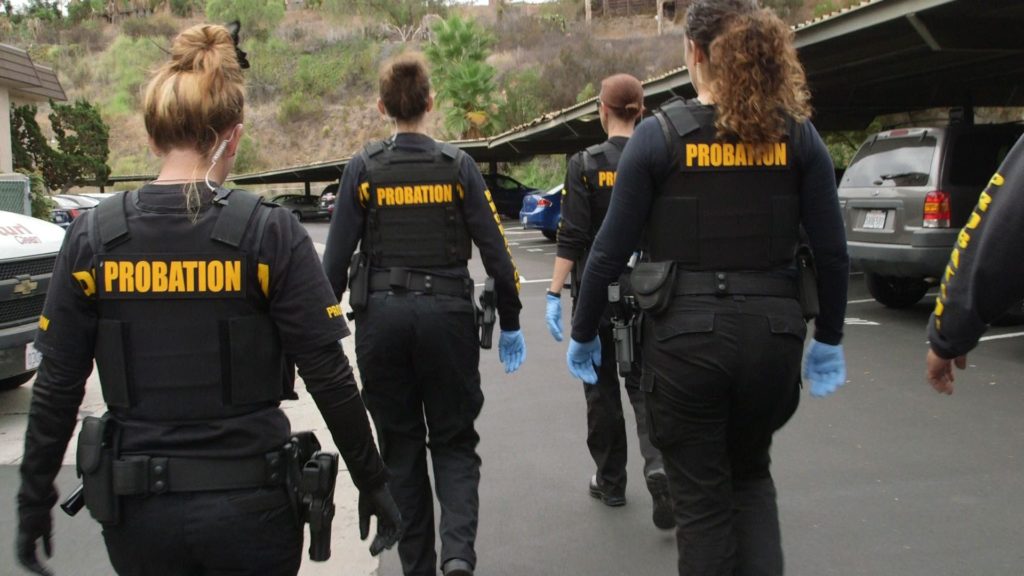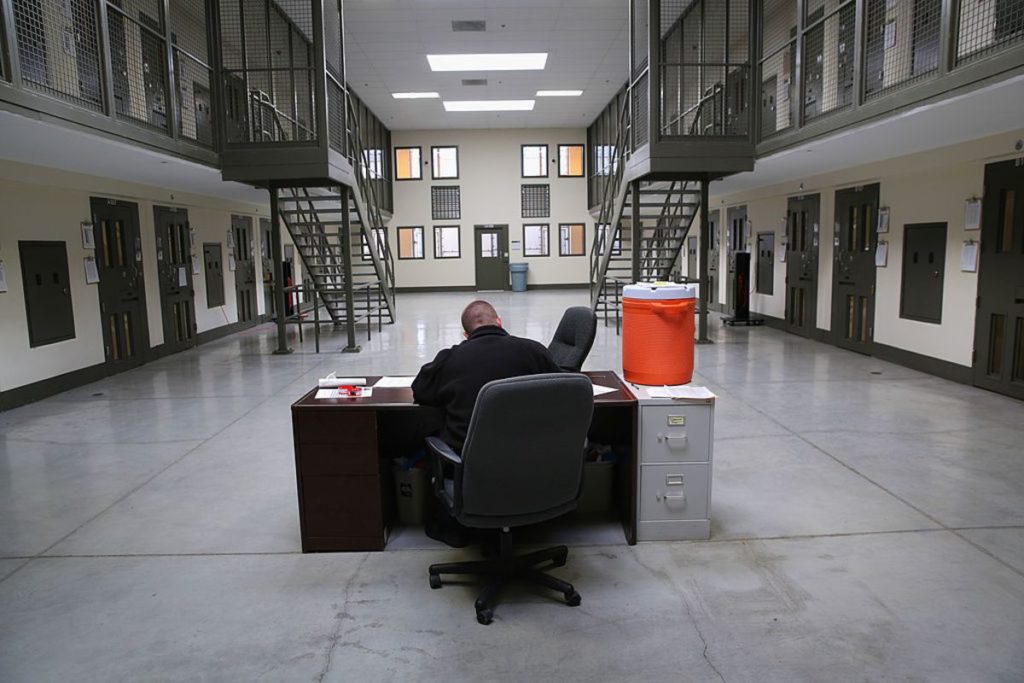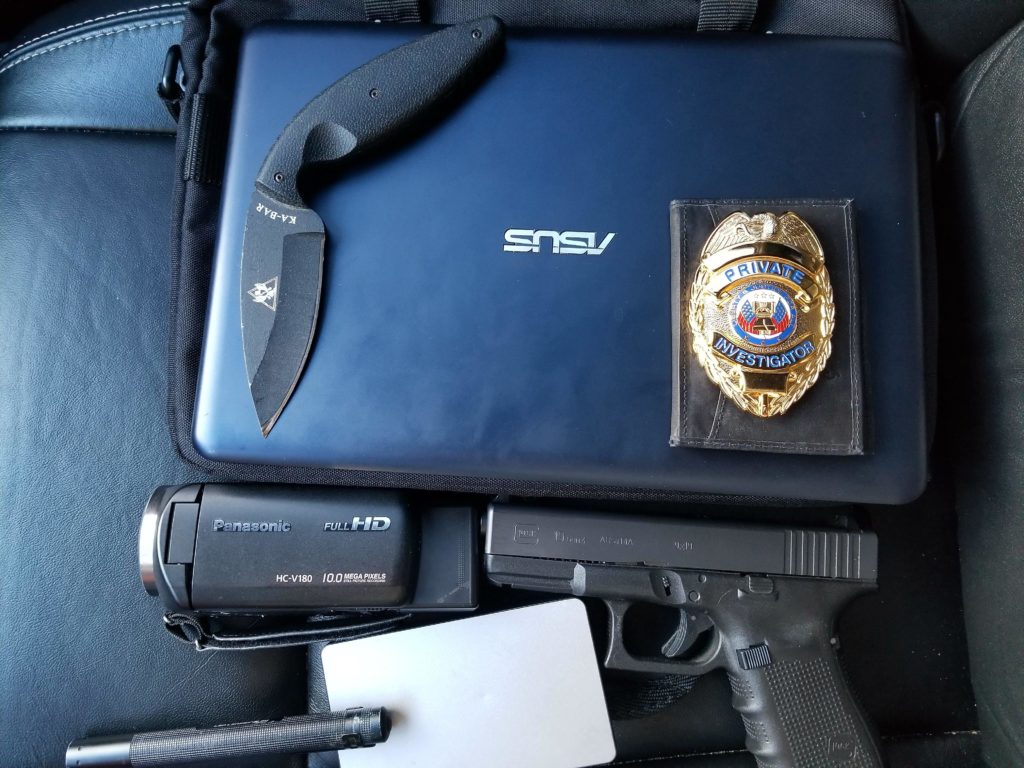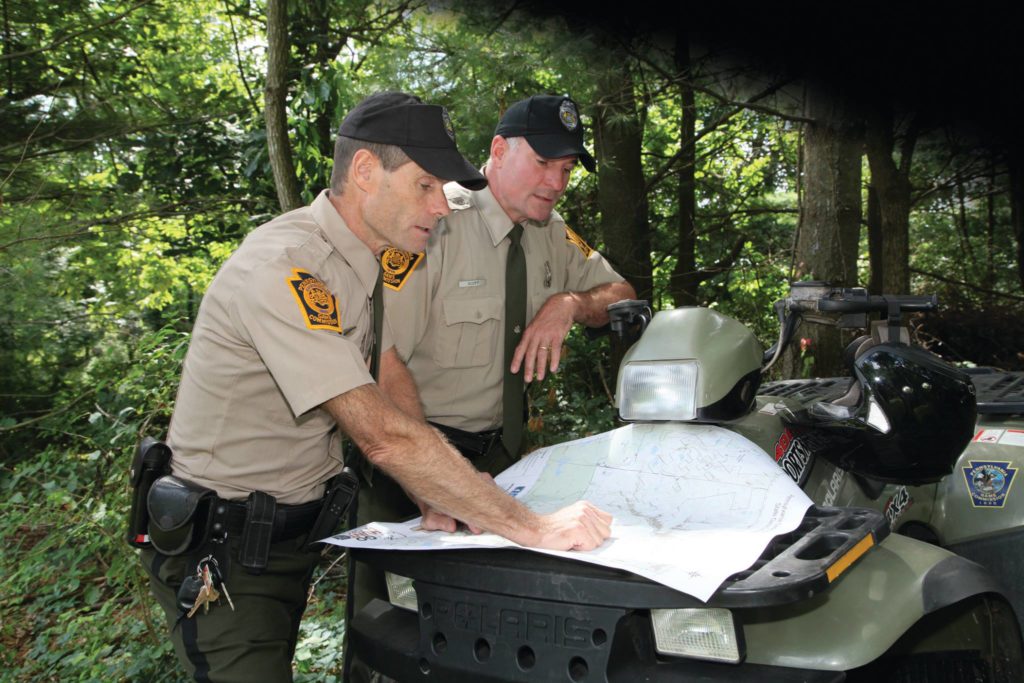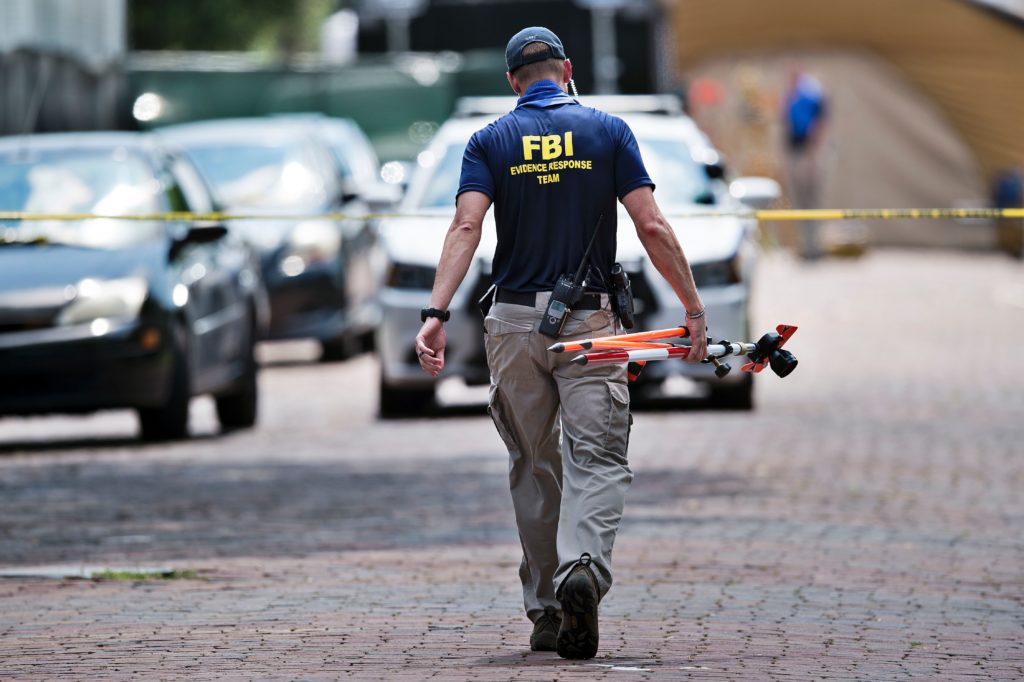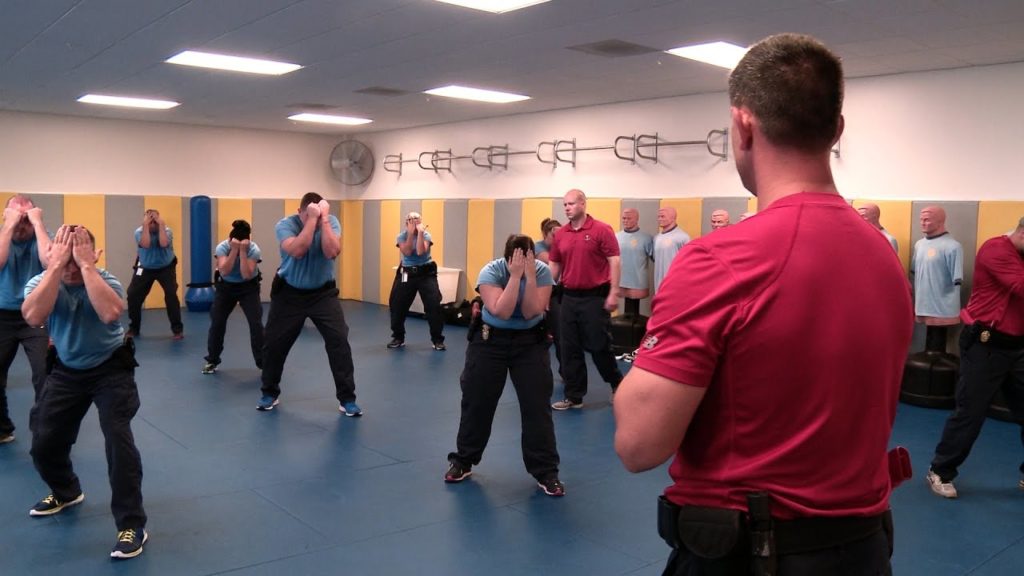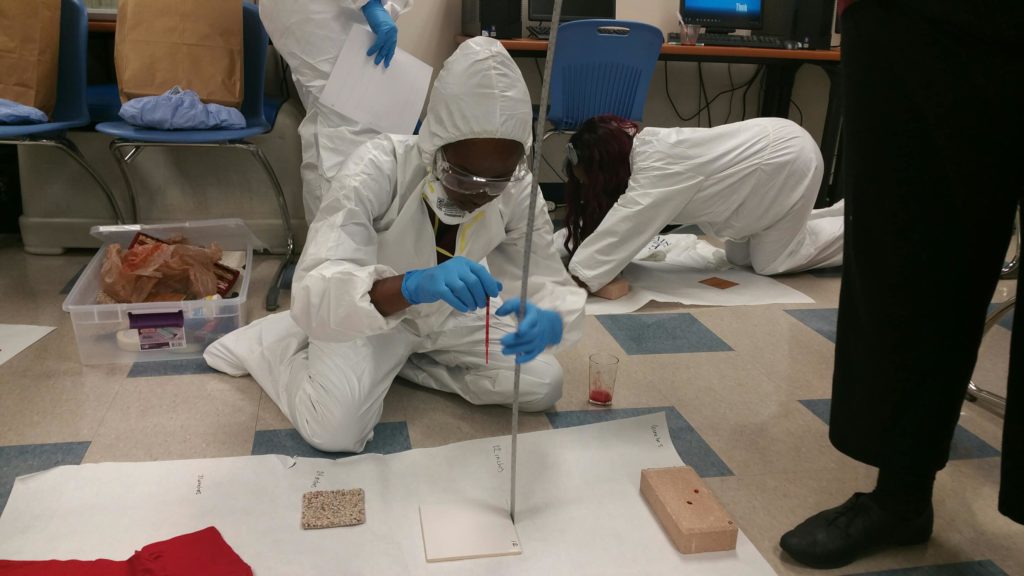Were you fascinated by the characters from TV shows like “Law and Order” and “The Wire?” Do you imagine doing many of the things you see the actors do, only in real life? All you have to simply do now is choose to pursue a degree in Criminal Justice and you’ll soon become a part of the vast network of institutions and organizations that serve the criminal justice system. Okay, that sounds great, right? But what exactly can you do with a criminal justice degree?
Earning a degree in criminal justice can help you get hired for a wide variety of different job opportunities within the criminal justice field. In as little as two years you can earn a degree and qualify for many entry-level positions in law enforcement, security, and corrections. Attaining a bachelor’s or master’s degree, however, opens up many more doors to exciting and lucrative criminal justice careers.
Why Get a Bachelor’s Degree?
You might know some well-meaning people who have told you something along the lines of – No one needs to spend all that time and money on school to get a job working in the criminal justice field. To be sure, there are people who work in the field without degrees. Not surprisingly, however, the best jobs are going to require credentials.
There are more than just a few good reasons to work toward having a bachelor’s degree. For one, it shows that you are able to accomplish the goals you set; likewise, it shows that you’re a serious person and that you are further serious about the professional practice of criminal justice. The successful attainment of a degree demonstrates, moreover, other important less tangible things that can’t be demonstrated through a job interview – a degree demonstrates that you can delay personal gratification and work under pressure to achieve a goal. Similarly, it demonstrates that you can understand diverse perspectives, balance competing interests, and process information from accredited sources.
To this end, employers are always on the lookout for candidates to demonstrate these skills, this way they can help ensure that new hires will have not only the ability but also the empathy required to fulfill the duties and obligations of these critical public service roles.
Police officers, of course, make up a large portion of the professionals working in law enforcement. But you may feel more suited and driven to pursue other options, many of which you may not even be aware. With such a wide range of roles available, you should be able to find a job that is a good fit for your unique interests, skills, talents, and salary expectations. By earning a criminal justice degree and completing subsequent training programs, you can develop a variety of skills essential to success as a law enforcement, security, or corrections professional.
The Difference Between Criminology and Criminal Justice
For those who haven’t yet decided what to study, it’s important to distinguish between criminology and criminal justice. Though they are certainly complimentary fields of study, they focus on different sides of the same coin (Penn State students can get an Administration of Justice degree at the Commonwealth campuses and, if they desire, a degree in Criminology at the main campus).
People who study criminology look at crime as a social phenomenon and thus a social problem. They study all aspects of crime and its effects on society as a whole. Alternatively, students of criminal justice tend to study the system and the institutions within which crime is detected, prosecuted and punished.
Criminology careers are generally more academic in their focus than those in criminal justice, though there is some overlap between the two. It is also not uncommon for a person to earn a bachelor’s degree in criminal justice and a Masters degree in criminology, or vice versa. Both career approaches require students to be able to understand the role that evidence-based research plays in informing understanding of crime and criminal justice institutional practice.
Probation Officer
According to the US Bureau of Labor Statistics, the 2010 median wage for probation officers is $47,000 per year, with 18% job growth expected through 2020. Probation officers monitor parolees released from the corrections system to ensure that they abide by the terms of their probation while assisting parolees with adjusting to life after release using specialized treatment techniques. A probation officer is typically assigned a caseload of parolees, with whom they interact at the parolees’ homes and places of work as well as at the office. This gives probation officers the opportunity to make a positive difference in the lives of others. Those interested in the criminal justice system or social work may find a career as a probation officer to be very rewarding.
Forensic Science Technician
The US Bureau of Labor Statistics estimates the annual salary of forensic science technicians at $55, 660, though the average salary is higher in states with high demand for these specialists like California, Virginia, and Illinois, where the average is between $61,040 and $74,050. Aspiring forensic science technicians can get a head start on the training required for this career as early as high school with a focus on science and math curriculums,2 but by obtaining a forensic science degree, individuals can enter this exciting field at any age. Forensic science technicians work in labs, government agencies, hospitals, courtrooms, and other places where the ability to reconstruct events based on clues such as hair samples, broken material, and fingerprints are needed. This is an exciting career for analytical minds with an interest in science.
Police Officer/Patrol Officer
Demand for police officers is expected to grow by 7%, with an average annual salary of $55,010 reported by the US Bureau of Labor Statistics. Police officers are on the front line of the US criminal justice system, working not just to apprehend criminals but to prevent crime through community outreach and visible presence efforts. Every city and municipality from rural communities to metropolises like New York needs a police force, which offers job security for those accepting a position as a police officer. Successful police forces invest in a great deal of training for their officers beyond the initial degree and certification; such training includes cultural diversity awareness, legal ethics, and law enforcement technologies. This is a demanding and fast paced career with personal and professional growth opportunities.
Correctional Officer
Correctional officers, who work primarily within jails and prisons to supervise and assist those convicted of crimes, average a salary of &39, 000 year according to the Bureau of Labor Statistics. Correctional officers are needed at the local, state, and federal levels as each judicial body maintains separate incarceration systems. Less pre-career training is needed for correctional officers than for other careers within the justice system because correctional officers receive qualification and on the job training on a regular basis to ensure their safety and that of a prison population. The focus for correctional officers in recent years has shifted from one of “guarding” prisoners to one of rehabilitating prisoners by enhancing their treatment programs while incarcerated. Degrees, certifications, and/or past experience in social work or criminal justice will help those interested in starting a career as a correctional officer.
Private Detective/Investigator
While they may assist public detectives and local police forces, private detectives and investigators also take on cases in the private realm that do not involve a criminal aspect, adding variety to daily work while earning an average salary of $48,610 according to the Bureau of Labor Statistics. Private detectives are often hired to do background checks and uncover information related to divorce cases, worker’s compensation claims, and other work similar to that of a public detective. Knowledge of forensics and the law as it applies to collecting evidence and surveillance is a must in this field, which is why most private detectives have a degree in criminal justice as well as some experience working as a detective or officer in the public sector.
Fish & Game Warden (Game Commission Officers)
For those who enjoy the outdoors and an active lifestyle, the average annual salary of a fish and game warden, estimated by the Bureau of Labor Statistics at $55,670, is a generous reward for enjoying what comes naturally. Fish and game wardens work in forest preserves, public waterways, national parks, and other protected recreational and conservational areas to ensure that the wildlife and habitat are protected and visitors are kept safe. Demand is highest for fish and game wardens in states with many busy parks and natural areas, such as Arizona, Texas, and Florida. This position uniquely combines the knowledge areas of biology and law enforcement in a challenging career, where certifications in criminal justice with classes in forensics or biology will be helpful.
State Trooper
State troopers work on state highways, ensuring that all state and federal vehicle laws are met. This includes well-known laws such as speeding and seatbelt use, but state troopers are also responsible for enforcing lesser known laws, such as those regulating the use, size, and equipment of commercial vehicles such as semi-trucks. State troopers also assist local and federal law enforcement in searching for and apprehending wanted criminals, detecting signs of illegal activity, and preventing terrorism. These professionals earn roughly the same salary as other police officers, with a median wage of $55,010 reported by the Bureau of Labor Statistics. However, highly trained or experienced state troopers may command a higher salary, especially in higher-risk metropolitan areas.
Computer Forensics Investigator
Computer forensics investigators or specialists combine the specialties of forensic science, computer science, and criminal investigation. Computer forensics investigators reconstruct data and activities on electronic media rather than on crime scenes because as technology moves forward crime is being committed more frequently with computers and electronic devices. Criminals may try to destroy electronic evidence by deleting it, hiding it, or even physically destroying it, which is where computer forensics investigators come in. These highly trained individuals use advanced data extraction techniques to piece together information that criminals hoped was lost, and may be called on in court to present their findings.
Para Legal/Legal Assistant
Paralegals, also sometimes known as legal assistants, are individuals who are trained to assist attorneys in the delivery of legal services. They might work for law firms, corporations, the government, and in other practice environments, but always under the supervision of a lawyer. Paralegals can’t give legal advice. They can’t represent clients in court, establish legal fees, or sign documents that will be filed with the court.
Paralegals must have a solid knowledge of legal terminology, federal and state rules of legal procedure, and substantive law. They must have excellent organizational skills to manage voluminous case files and exhibits, which can number in the hundreds for a single case. Communication skills are crucial because paralegals regularly interact with clients, experts, vendors, court personnel, and attorneys other than their employers. Strong research and writing skills are also necessary for drafting pleadings, research memorandums, correspondence, and other documents. An ability to handle pressure and looming deadlines can be crucial in some specialties, particularly litigation.
Although some paralegals possess no formal paralegal, many have two-year associate degrees or four-year bachelor’s degrees. Some colleges offer courses toward a paralegal certificate. Most certification bodies require that a paralegal pass an examination and possess at least one year of experience in the field.
Paralegals with a bachelor’s degree in paralegal studies or a college degree in any field combined with a paralegal certificate generally have the most career prospects. Some paralegals work their way up, though, starting as legal secretaries within a firm and taking on more and more responsibility as they learn the ropes. They become indispensable to the firm and can still enhance their professional status through paralegal certification.
Court Reporter
Court reporters – also referred to as shorthand reporters – are responsible for keeping written records of legal proceedings, whether in government, court, or private settings. The verbatim documentation in criminal, civil and other court proceedings requires professionals who are highly skilled and trained in court reporting, which usually involves stenography.
Court reporters may also find a wealth of professional opportunities in the fields of closed and real-time captioning services, webcasting, and Communications Access Realtime Reporting (CART) reporting, all of which require expert stenographic skills. Voice writing, which involves speaking into a computer that then translates the words into written transcripts, is also another important field within court reporting.
This occupation does not necessarily require a college degree (though it requires training/certification); however, those pursuing their 4-year credential over a longer period of time, particularly people trying to balance work and family responsibilities, might want to pursue this training while continuing their college studies to obtain a more advanced credential. This occupation can offer a means to acquire in-depth insight into how the criminal justice system works. You will literally have a front row seat!
Crime Victims Service Coordinator
When you work as a crime victim specialist, you will play a crucial role in the criminal justice system. Keep in mind that when someone is the victim of a crime, or they are related to a loved one who is the victim of a violent crime, they need all the support they can get. This goes beyond the emotional needs and extends to help with daily tasks, such as appointment setting and arrangements that need to be made as a result of the crime. Unfortunately, police officers and social workers don’t always have the time to dedicate to these tasks. Crime service specialists are essential to making sure the victim and their family are okay throughout the process while allowing law enforcement to focus on their role in the investigation.
This is a type of job that requires a criminal justice degree, though it is not typically glorified on the crime shows or movies. As a victim’s advocate, you might also help represent children in the courts when their adult relatives cannot be present or support them in a legal environment. In your role, you will help them learn how to plan for safety; especially in domestic or other abuse-related cases. There are many ways these advocates help victims. But the fact that this job typically flies below the radar in the field of criminal justice does not dismiss how essential it is.
Probate Investigator
If you’re asking, “What jobs can you have with a criminal justice degree?” and you’re interested in helping children, this might be the perfect match for you. Custody negotiations are necessary in divorce cases, or when a child needs a probate officer to step in and help settle the issue between the disagreeing sides. This can even involve making sure the parents are using the appropriate funds for the children’s medical insurance and other basic needs. You can prepare for this type of role through criminal justice programs, and by focusing on courses that involve child welfare and juvenile issues. Just remember, your first priority in this position is to protect the welfare of the child. The desire to protect the most vulnerable among us is the first reason to pursue this career.
Fraud Investigator/Loss Prevention Specialist
Fraud investigators earn an average salary of $58,460 according to the Bureau of Labor Statistics, thanks to their in-demand specialized skills and experience. Fraud investigators are often needed to determine whether or not a claim is true, usually after an insurance company or other party has paid for a claim. This could involve claims of property damage, personal injury, or other types of fraud such as corporate financial crimes. Fraud investigators gather evidence, interview the parties involved, and present their findings to the client that hired them. The Bureau of Labor Statistics forecasts that health insurance fraud investigators will be in particularly high demand in coming years due to the recent federal health care legislation, making fraud investigation a strong career choice for future growth. Expertise in finance and accounting in addition to coursework in criminal justice is helpful in this particular career field.
FBI Agent
FBI agents have a multitude of responsibilities, as their primary task is to enforce federal law as agents of the Federal Bureau of Investigation. For this reason, many FBI agents specialize in one area of law enforcement after graduating from new agent training. The new agent training is extremely rigorous, including nearly 1,000 hours of training in academics, case exercises, firearms training, and operations.
After training, FBI agents may work against terrorism, cyber crime, civil rights violations, public corruption, organized crime, violent crime, or major thefts, following each step of an investigation through to the sentencing of a criminal. In order to become an FBI agent, applicants must have a four-year degree by an accredited institution. There are many career paths that special agents can enter to start their career, including Finance & Accounting, Information Technology, Language, Intelligence Analysis, and Applied Science, Engineering & Technology. The degree obtained should match the entry path, though the FBI also suggests some critical skills that could help applicants obtain a position as a special agent.
The first place to start for any student interested in an opportunity with the FBI is the FBIJOBS.GOV website, where you can apply for an internship opportunity (must pass a background check).
Pittsburgh and Penn State applicants can contact the local recruiter, Jeff Tisak, for additional information. His contact phone is 412-432-4405.
A member of the FBI walks to the Pulse nightclub June 13, 2016 in Orlando, Florida. Forty-nine people died and more than 50 were injured early June 12 when a heavily-armed gunman opened fire and seized hostages at a gay nightclub in Orlando, Florida, in the worst mass shooting in US history. / AFP / Brendan Smialowski (Photo credit should read BRENDAN SMIALOWSKI/AFP/Getty Images)
CIA Agent
Special agents for the Central Intelligence Agency help the federal government investigate violations of the law all over the world. Like domestic agents and police officers, CIA agents put their lives at risk in service to their department and community, but are more often called upon to do so covertly. This element of risk contributes to the high salary of CIA special agents, between $74,872 and $155,500 for agents based in Washington, DC, where CIA headquarters are located. However, CIA agents may be based in satellite offices in the US or abroad, as a CIA agent can be called upon for foreign travel. CIA agents collaborate with other law enforcement agencies on a regular basis by bringing a special mix of skills acquired in CIA training to the table. Those interested in becoming a CIA agent are encouraged to obtain a bachelor’s degree in a field related to law, forensics, language, or criminal justice, and acquire at least five years of experience in investigation.
ATF Agent
The career of an ATF special agent offers a unique challenge to work in federal law enforcement. Headquartered in Washington, DC, ATF has field offices throughout the United States and its territories. Highly trained special agents are responsible for investigating violations of federal laws relating to firearms, explosives, arson, and alcohol and tobacco diversion. These investigations involve surveillance, interviewing suspects and witnesses, making arrests, obtaining and executing search warrants, and searching for physical evidence. Special agents must be tough both physically and mentally. They must also be able to handle rigorous training, personal risks, irregular hours, and extensive travel. Special agents are subject to reassignment to any ATF office in the United States, to include any U.S. territory or ATF overseas assignment.
U.S. Postal Inspector
As members of the United States Postal Inspection Service, postal inspectors investigate and solve crimes related to the US mail. Such crimes include theft, vandalism, fraud, and even identity theft. Any time a crime is committed that involves the postal service, postal inspectors are likely to be involved. Postal inspectors use forensic techniques, question witnesses, and research leads in order to solve these crimes. In order to become a postal inspector, applicants must have a four-year degree from an accredited college or university and a clean criminal record. Applicants who are selected receive 12 weeks of intense training at the US Postal Inspection Service Strategic Learning Services facility in Maryland.
Immigration & Customs Enforcement Agent (ICE)
Immigration and customs enforcement agents are responsible for investigating, arresting, and deporting individuals who do not have permission to be in the US To do this they must keep abreast of current policies and regulations, make recommendations or presentations to courts hearing immigration cases, and participate in special assignments, which may be covert.12 The US Immigration and Customs Enforcement division is a component of the Department of Homeland Security, which entitles enforcement agents to a range of competitive benefits, including life and long-term care insurance, generous vacation time, flexible work schedules, and tuition reimbursement, just to name a few. Salary is based in part on experience, but applicants with a degree in criminal justice have an advantage in entering this exciting career.
Department of Homeland Security
The United States Department of Homeland Security (DHS) is a cabinet department of the United States Federal Government with responsibilities in public security. Its stated missions involve anti-terrorism, border security, immigration and customs, cybersecurity, and disaster prevention and management. It was created in response to the September 11th attacks and is the youngest U.S. cabinet department.
The job of DHS professionals is to protect the citizens of this country from attack, at home and abroad. DHS employees are involved in securing the nation’s borders, airports, seaports, and waterways. They are also involved in developing and testing new security technologies. In addition to responding to terrorist threats, the DHS also responds to natural disasters.
There are many DHS divisions that provide opportunities for homeland security professionals. These include Immigration Enforcement, US Customs and Border Protection, the Federal Emergency Management Agency (FEMA), the Secret Service, the Transportation Security Administration (TSA), and others.
Blood Spatter Analyst
As forensic scientists, blood spatter analysts have a highly specific education in the physics, biology, and chemistry of spilled blood. This education is the basis for an average salary of $53,090 according to the Bureau of Labor Statistics. Blood can be the most critical clue in a crime scene, but understanding how it arrived and who it belongs to can be an intense process. Blood spatter analysts visit the scene of a crime, help locate and preserve blood samples, and do in-depth analysis at the lab. This analysis may include experiments to try to replicate an intriguing blood spatter pattern. Even small volumes of blood require an educated blood spatter analyst’s investigation, since blood patterns vary according to motion, gravity, air pressure, volume, the surface it lands on, and many other variables. This career is not for the faint of heart but is a rewarding way to support the criminal justice system.
Homicide Detective
Homicide detectives support police officers and other investigative detectives with solving murders and apprehending suspects. The Bureau of Labor Statistics reports the average salary of all detectives at $55,010 per year, but because the work of a homicide detective is specialized the salary for this work is often higher. Homicide detectives must work to establish how and when a murder was committed, what the motive was, and who committed the crime. They will gather evidence, oversee the work of crime scene technicians, and identify and interview witnesses, sometimes years after an unsolved crime is committed; these investigations are sometimes called cold cases. The nature of this work makes the career of a homicide detective a stressful one, but through their work homicide detectives are able to make a real difference in the communities in which they live.
DEA Agent
Drug Enforcement Administration agents, known as DEA agents for short, work for the US Justice Department to enforce the drug laws of the United States. Salaries for DEA agents depend on education and experience, but a starting salary of $49,746 is average, which can increase to $92,592 or more after four years of working in the field. DEA agents investigate, track, arrest, and dismantle drug traffickers and their organizations through overt and covert operations. To excel in the competitive application process, the DEA recommends that applicants have a bachelor’s degree with a focus in criminal justice, police science, or foreign languages, although other bachelor’s degrees can help applicants succeed. Successful applicants receive 18 weeks of Basic Agent Training at the DEA Training Academy and may receive other ongoing training opportunities. DEA agents must also be in excellent physical condition.
A Secret Service agent keeps a watchful eye as U.S. President George W. Bush throws out the first pitch during the Milwaukee Brewers and St. Louis Cardinals Opening Game Day at Busch Stadium on April 5, 2004 in St. Louis, Missouri. (Photo by Donald Miralle/Getty Images)
Secret Service Agent
Although the US Secret Service is typically thought of as the service that protects the President and other high-level officials, Secret Service agents actually do much more. The Secret Service is tasked with protecting the integrity of the United States’ financial systems by thwarting cyber attacks on banking systems, identifying and removing counterfeit currency from circulation, and investigating, arresting, and prosecuting criminals who break the laws intended to protect our nation’s financial security. The Secret Service is also involved with crimes such as computer and telecommunications fraud and document forgery. Due to the nature of the work, the Secret Service expects agents to be willing to travel frequently, have a bachelor’s degree preferably with a focus related to the work of the Secret Service, and be in excellent physical condition. In return, agents receive comprehensive government benefits with a starting salary around $49,746 (GL-7), though this may be higher depending on an individual’s qualifications.
US Marshal
US Marshals transport, manage, and protect prisoners and federal witnesses; arrest wanted criminals; and administer the Department of Justice Asset Forfeiture Program, which seizes and sells assets purchased with illegally obtained money to compensate victims and fund law enforcement programs. As members of the nation’s oldest law enforcement agency, US Marshals also provide protection to judges, attorneys, and jurors in high profile or potentially dangerous court cases. What they are best known for, however, is apprehending fugitives from the law; in 2010, the US Marshals arrested over 36,000 fugitive felons – that’s almost 100 a day. To become a part of this fast-paced career, individuals should have a bachelor’s degree or a combination of education and experience to meet the government’s GL-07 level classification. Education in police work, criminal justice, foreign languages, or law will help applicants gain an edge.
Policy Advisor/ Non-Profits and Research Organizations
Let’s say you work in law enforcement for several years while working your way up through graduate degree programs. From there, you are seen as an expert in a specialized area of law enforcement, thanks to your years of experience. With these kinds of credentials, you can help shape public policy and organizational goals at both the public and private levels.
There are many types of non-profit, for-profit, and government agencies that can use professionals with experience in the field of criminal justice to help foster dialogue between private citizens, businesses and government organizations. Completing one of the many criminal justice programs offered at your college can be one of your first steps toward working as a policy analyst.
Example:
How Can I Find a Job?
If you are just starting to research jobs that require a criminal justice degree, then you are probably searching around to see what careers are out there once you complete your education. So, of course, it only makes sense to begin scouring the net for every list of criminal justice jobs you can find.
When looking for your first criminal justice job, you benefit from starting your search early. Start looking at agency websites and documenting their individual requirements for applicants.
Review internship application deadlines and requirements. And look for local professional associations, whose meetings you might attend so that you can learn more about occupations from industry insiders, who might be willing to help connect you to resources that can help you build your professional network and secure a job offer.
Finally, cultivate a good relationship with your professor. Many of the jobs you will be applying for may require background investigations and security clearances. Cultivating as well as demonstrating good work habits and demeanors in the classroom can go a long way in helping you to secure a proper job reference (or fail to obtain one).
References:
Career information provided by Criminal Justice Degree Schools, which you can access directly by following the hyperlink embedded here.
1. Siegel, Larry J. Introduction to Criminal Justice. 12th ed. Belmont: Wadsworth Cengage Learning, 2010.
2. Echaore-McDavid, Susan and Richard A. McDavid. Career Opportunities in Forensic Science. New York: Ferguson, 2008.
3. Glenn, Russell W., et al. Training the Twenty-first Century Police Officer. Santa Monica: Rand Public Safety and Justice, 2003.
4. Josi, Don A. and Dale K. Sechrest. The Changing Career of the Correctional Officer: Policy Implications for the 21st Century. Woburn: Butterworth-Heinemann, 1998.
5. McMahon, Rory J. Practical Handbook for Private Investigators. Boca Raton: CRC Press LLC, 2001.
6. Grosz, Terry. Wildlife Wars: The Life and Times of a Fish and Game Warden. Boulder: Johnson Books, 1999.
7. Jaquish, Michael. The Role of the Security Officer. Gig Harbor: Michael James Jaquish and Security Training Services International, 2006.
8. Olsen, Marilyn. State Trooper: America’s State Troopers and Highway Patrolmen. Paducah: Turner Publishing Company, 2001.
9. Fisher, Barry A.J. Techniques of Crime Scene Investigation. 7th ed. Boca Raton: CRC Press LLC, 2005.
10. Kruse, Warren G. II and Jay G. Heiser. Computer Forensics: Incident Response Essentials. Crawfordsville: Lucent Technologies, 2010.
11. Pedneault, Stephen. Anatomy of a Fraud Investigation. Hoboken: John Wiley & Sons Inc., 2010.
12. Sherman, Michael D. et al. U.S. Customs: A Practitioner’s Guide to Principles, Processes, and Procedures. Chicago: American Bar Association, 2009.
13. Bevel, Tom and Ross M. Gardner. Bloodstain Pattern Analysis: With an Introduction to Crime Scene Reconstruction. 3rd ed. Boca Raton: CRC Press, 2008.
14. Miletich, John J. Homicide Investigation: An Introduction. Lanham: Scarecrow Press, Inc., 2003.
15. Walton, Richard H. Cold Case Homicides: Practical Investigation Techniques. Boca Raton: CRC Press, 2006.


